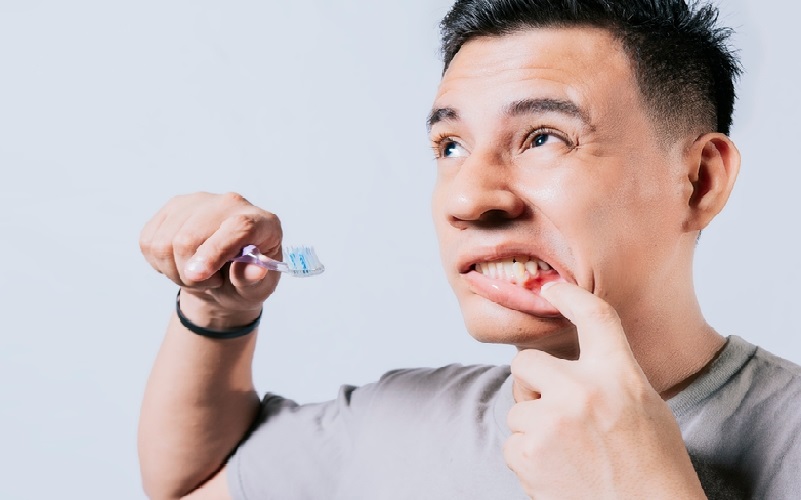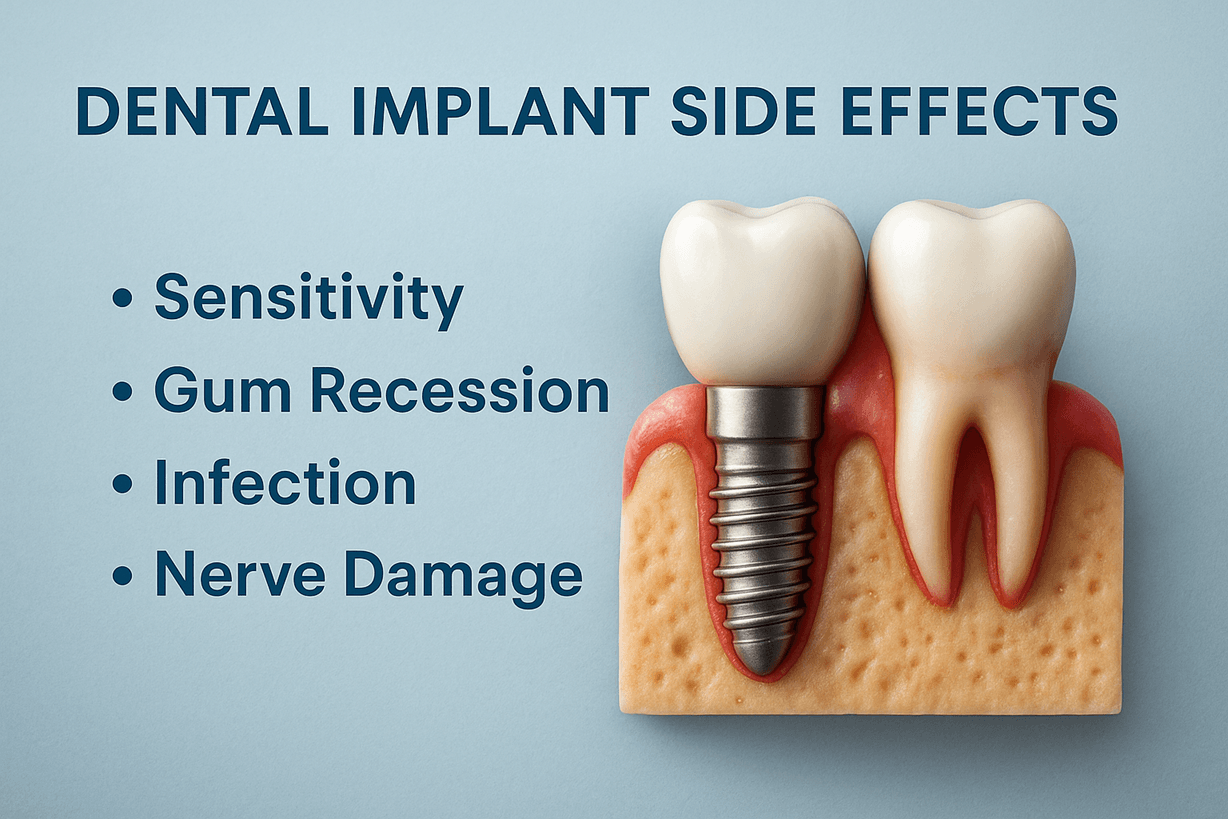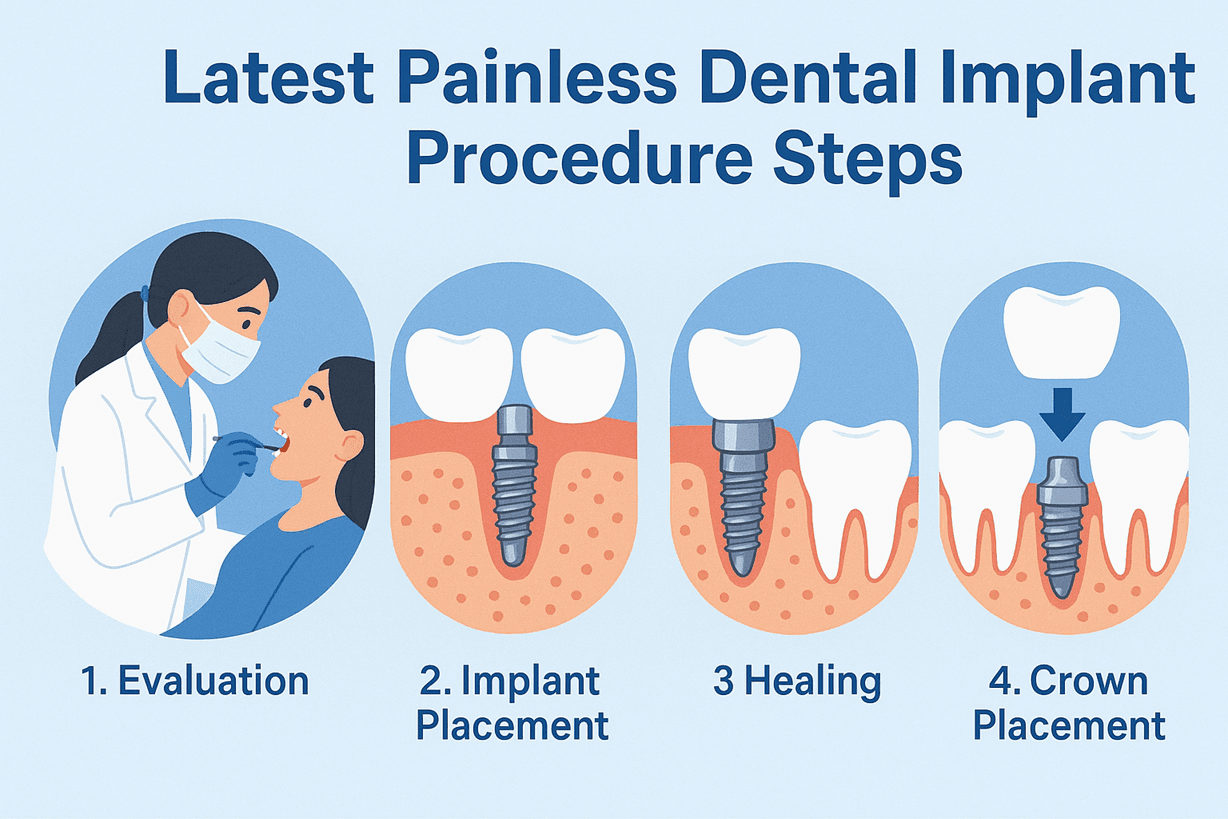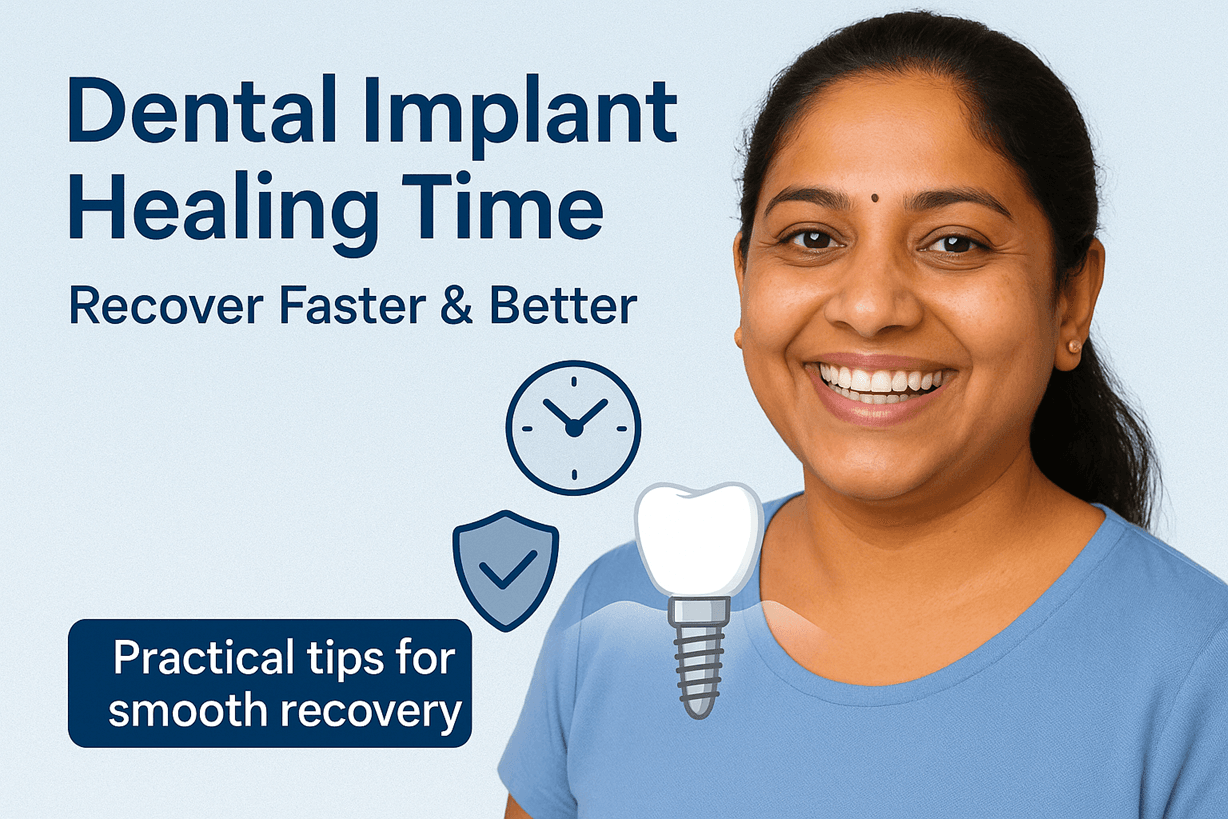Contents
- What are Bleeding Gums Causes and Symptoms?
- The Importance of Addressing Bleeding Gums
- Professional Dental Evaluation: Diagnosis and Assessment
- Exploring Professional Treatment Options for Bleeding Gums
- Effective Home Remedies for Treating Bleeding Gums
- The Role of Nutrition in Maintaining Gum Health
- Lifestyle Factors That Impact Gum Health
- Recognizing Signs of Progress: Healing Bleeding Gums
- Preventive Measures to Sustain Healthy Gums
- Conclusion
- Frequently Asked Questions

Bleeding gums are a common but concerning dental issue, often indicating underlying oral problems that should not be ignored.
In this blog, we will explore the causes, symptoms, and effective treatments for bleeding gums. Additionally, we'll discuss home remedies and preventive measures to maintain healthy gums.
By understanding the various aspects of bleeding gums and implementing the right treatment and prevention strategies, you can achieve healthier gums and overall dental well-being.
What are Bleeding Gums Causes and Symptoms?
Bleeding gums are primarily caused by inadequate oral hygiene, leading to the buildup of plaque and bacteria along the gumline.
This buildup irritates the gums, causing inflammation and eventually leading to bleeding.
Other common causes include gum disease, hormonal changes, vitamin deficiencies, and certain medications.
The symptoms of bleeding gums include redness, swelling, tenderness, and bleeding during brushing or flossing.
The Importance of Addressing Bleeding Gums
Ignoring bleeding gums can lead to serious oral health issues, including gum disease, which may cause gum recession, and tooth loss, and affect overall well-being. Prompt treatment is crucial to prevent complications and maintain good oral health.
Bleeding gums can signal early gum disease, such as gingivitis or periodontitis. Gingivitis involves gum inflammation, while periodontitis affects the supporting structures of the teeth.
Recognizing these conditions helps in understanding the severity of bleeding gums and the need for appropriate treatment.
Professional Dental Evaluation: Diagnosis and Assessment
- If you are experiencing persistent bleeding gums, it is essential to visit a dental professional for a thorough evaluation.
- The dentist will examine your gums, assess the extent of the issue, and identify any underlying causes or dental conditions contributing to the bleeding.
- This evaluation will guide the treatment approach and help in developing a personalized plan for your oral health.
Exploring Professional Treatment Options for Bleeding Gums
In more severe cases of bleeding gums, professional treatment may be necessary. Your dentist may recommend scaling and root planing, a deep cleaning procedure that removes plaque and tartar from below the gum line.
In some instances, surgical intervention or other advanced procedures may be required to address underlying dental conditions.
Effective Home Remedies for Treating Bleeding Gums
In addition to professional treatment, several home remedies can help alleviate bleeding gums. These include proper oral hygiene practices like brushing twice a day, flossing daily, and using an antimicrobial mouthwash.
Rinsing with warm salt water, applying aloe vera gel, and using herbal remedies like chamomile tea can also provide relief and promote the healing of the gums.
The Role of Nutrition in Maintaining Gum Health
Proper nutrition plays a crucial role in maintaining optimal gum health. The health and state of our gums are directly impacted by the things we eat.
An immune system that is strengthened by a diet high in critical nutrients, like calcium, antioxidants, and vitamins C and D, supports the integrity of gum tissue.
Vitamin C helps by producing collagen. Collagen is essential for having healthy gums.
Calcium and vitamin D increase bone density and mineralization, which contribute to healthy teeth and gums.
Antioxidants help by scavenging free radicals in the gum tissue. By doing so, they reduce inflammation and protect gum tissue from damage.
Incorporating foods rich in antioxidants- a variety of fruits, vegetables, whole grains, lean proteins, and dairy products- into your diet can provide the necessary nutrients to maintain gum health.
Conversely, a diet high in sugary and processed foods can increase the risk of gum disease and inflammation. By adopting a balanced and nutritious diet, you can nourish your gums and support their overall health and well-being.
Lifestyle Factors That Impact Gum Health
Certain lifestyle choices can have a significant impact on gum health. For instance, smoking or using tobacco products is strongly linked to gum disease and can hinder the healing process of bleeding gums.
It is crucial to quit smoking or using tobacco to improve gum health. Additionally, managing stress levels is important as stress can weaken the immune system and make it harder for the body to fight off infections, including gum infections.
Recognizing Signs of Progress: Healing Bleeding Gums
As you implement proper oral hygiene practices and follow the recommended treatments, you may start noticing positive changes in your gum health.
Reduced redness, swelling, and bleeding are signs of progress. It is important to recognize these improvements and stay motivated to continue your oral care routine.
Preventive Measures to Sustain Healthy Gums
After bleeding gums have been successfully treated, it is crucial to keep your gums healthy over the long term.
This entails maintaining good oral hygiene habits, making time for routine dental exams, and adhering to any other instructions or suggestions your dentist may make.
You can reduce the likelihood of suffering bleeding gums once more by practising preventative oral hygiene.
Conclusion
Bleeding gums should never be ignored, as they can be indicative of underlying dental conditions that require attention.
By understanding the causes and symptoms of bleeding gums and adopting appropriate treatment and preventive measures, you can effectively manage this issue.
Remember to maintain good oral hygiene practices, seek professional dental evaluation when needed, and make positive lifestyle choices that promote gum health.
With consistent efforts and the right approach, you can achieve healthier gums, a brighter smile, and overall oral well-being.
Frequently Asked Questions
1. What To Do If Your Gums Keep Bleeding?
Maintain good oral hygiene, rinse with warm salt water, use an antimicrobial mouthwash, avoid tobacco, and schedule a dental appointment for a professional evaluation.
2. What Is The Best Treatment For Bleeding Gums?
The best treatment depends on the cause, but options include professional dental cleaning, scaling and root planing, antibacterial rinses or gels, antibiotics, and, in severe cases, surgical interventions.
3. What Can I Put On Bleeding Gums?
Apply a small amount of aloe vera gel or use a cold compress for temporary relief. However, professional dental care is essential to address the underlying cause.
4. How Are Bleeding Gums Treated?
Treatment involves professional dental cleaning, scaling and root planing, medications like mouth rinses or antibiotics, oral hygiene education, regular dental visits, and lifestyle changes such as quitting smoking and managing stress.
5. Is Bleeding Gums Curable?
Yes, in many cases, bleeding gums are curable. With proper treatment and consistent oral hygiene practices, such as brushing and flossing regularly, addressing the underlying cause, and seeking professional dental care, you can effectively manage and resolve bleeding gums.
However, it's important to note that individual results may vary, and it's crucial to maintain good oral health habits to prevent the recurrence of bleeding gums.
6. How Long Do Bleeding Gums Take To Heal?
The healing time for bleeding gums can vary depending on the severity of the condition, the individual's oral hygiene practices, and the effectiveness of the treatment.
With appropriate treatment and consistent oral care, improvements can often be seen within a few days to a couple of weeks.
However, complete healing may take longer, ranging from a few weeks to several months. It's essential to follow your dentist's recommendations, maintain good oral hygiene, and attend regular dental check-ups to ensure proper healing and prevent future issues.



